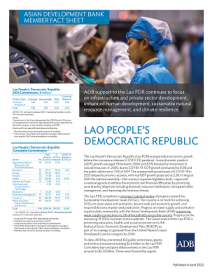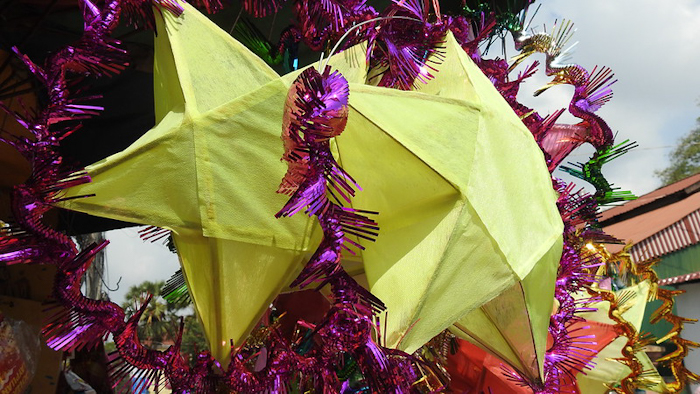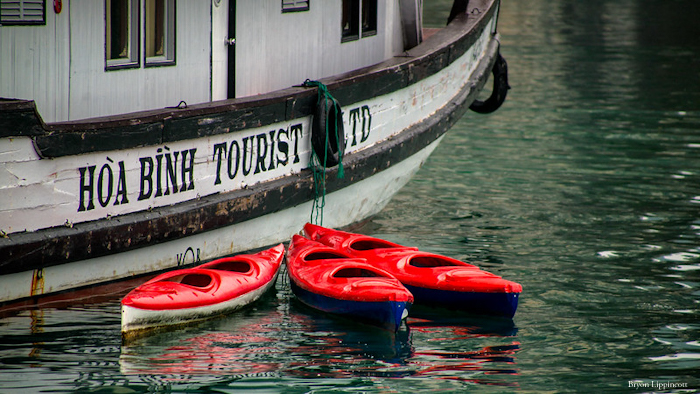
Asian Development Bank and the Lao PDR: Fact Sheet
ADB is one of Lao PDR's largest sources of official development assistance, with an average annual lending of $100 million over the 5 years to 2021.
Countries in the Greater Mekong Subregion are working together to promote the subregion as a single destination for international visitors and encourage communities to enhance the environmental, social, and economic benefits of tourism.
The Tourism Working Group (TWG) provides operational leadership and technical guidance to plan, implement, monitor, and evaluate subregional activities.
In September 2017, ministers from the six member countries of the Greater Mekong Subregion (GMS) endorsed the GMS Tourism Sector Strategy 2016-2025 to enable more competitive, balanced, and sustainable destination development. The Strategy sets out five strategic directions: (a) develop human resources, (b) improve tourism infrastructure, (c) enhance visitor experiences and services, (d) conduct creative marketing and promotion activities, and (e) facilitate regional travel.
Work of the GMS tourism working group has included marketing sustainable and pro-poor tourism in the subregion through the development of multi-country tour packages; training government officials and people working in the tourism industry; producing local products for sale to tourists; and preserving the ecological and cultural heritage of key tourist sites in the subregion.
The GMS Economic Cooperation Program Strategic Framework 2030 (GMS-2030) builds on the current Tourism Strategy directions. Since the subregion’s tourism industry has been severely impacted, the GMS-2030 will promote recovery efforts, such as intraregional tourism. Over the long term, GMS-2030 will support the development of higher value-added and secondary destinations, as well as strengthen human capital, connectivity infrastructure, public–private linkages, and environmental sustainability. GMS-2030 was endorsed and adopted at the 7th GMS Summit of Leaders in September 2021. It aims to provide a new setting for the development of this subregion for the next decade.
Related
• Greater Mekong Subregion Tourism Sector Strategy 2016-2025
• Mekong Tourism Coordinating Office website
Focal Persons at the Asian Development Bank
Steven Schipani
Water and Urban Development Sector Office
Sectors Group
Dee Suvimol Thanasarakij (Ms.)
Executive Director,
Mekong Tourism Coordinating Office
www.mekongtourism.org
Other Concerned Staff & Consultants
Asadullah Sumbal
Regional Cooperation and Integration Unit
Southeast Asia Department
Alma Canarejo
Regional Cooperation and Integration Unit
Southeast Asia Department/GMS Secretariat
Send inquiries to GMS Secretariat.

ADB is one of Lao PDR's largest sources of official development assistance, with an average annual lending of $100 million over the 5 years to 2021.

ADB remains deeply concerned about recent developments in Myanmar and will continue to consult with shareholders and other stakeholders on any operations in the country.

ADB is one of Cambodia's largest sources of official development assistance, with average annual lending of $329.8 million from 2016-2021. The bank's support is aligned with the Cambodia's National Strategic Development Plan 2019-2023.

Photo by Dennis Sylvester Hurd via Flickr (CC BY 2.0)
Cambodia and the Lao People’s Democratic Republic have reported a steady drop in average COVID-19 cases per day in April 2022, according to a report on “Vaccination Rates, Effectiveness, and Safety” by the Asian Development Bank (ADB). In Cambodia, the average COVID-19 cases per day dropped from 164 to 18.4, and deaths decreased from 1 to 0.06, marking a fall in case fatality rate from 0.43% to 0.35%. In Lao PDR, daily infection rates declined steadily, averaging at 986 for April 2022 from 1102 in March 2022, while average deaths per day plateaued between 1 to 3.
A proposed Asian Development Bank (ADB) project will help finance two standard ports that will boost the fisheries and tourism sectors of Cambodia’s Kep province.
A report by the Khmer Times shared provincial officials and ADB are working to establish the ports’ locations, according to Mr. Vao Sokha, Kep Deputy Governor.
Cambodia, Lao PDR, and Viet Nam (CLV) are looking to revitalize tourism in the CLV subregion, and held a meeting on 4 May to discuss implementing the Tourism Development Plan for the Development Triangle Region (2020-2025) and Vision 2030. The working group plans to promote tourism in the triangle region through exhibitions, videos, logos and brands, with a focus on digital advertising.
Instead of recapturing the tourism of the pre-pandemic era, countries should strive to create a new kind of tourism that is more closely aligned to the SDGs.
The Asian Development Bank (ADB) launched the Southeast Asia Sustainable Tourism Hub on 17 March 2022 at the third Southeast Asia Development Symposium (SEADS).
Southeast Asia’s tourism industry is still reeling from the impact of the COVID-19 pandemic. To accelerate an inclusive and sustainable recovery, ADB is increasing its support for investments, capacity development, and knowledge.

A cruise ship in Ha Long Bay, Viet Nam. Photo by Bryan Lippincott (CC BY-ND 2.0)
The 25th Meeting of ASEAN Tourism Ministers held on 19 January 2022 in Sihanoukville, Cambodia, exchanged views on the way forward for the recovery of the region’s tourism industry. Bearing the theme “ASEAN – A Community of Peace and Shared Future,” the Meeting discussed the impact of COVID-19 on each ASEAN member state and emphasized the development of the tourism sector amid the coronavirus disease (COVID-19) pandemic.
Decline in Tourist Growth

Waterfall in Phnom Kulen, Siem Reap, Cambodia. Photo by Kim Seng (CC BY-NC-ND 2.0)
The Government of Cambodia’s Ministry of Environment plans to develop and establish ecotourism in protected areas of Siem Reap, Kampong Speu, and Koh Kong provinces under the “Cambodia Sustainable Landscape and Ecotourism Project.”
Areas that will potentially be developed include the Preah Jayavarman-Norodom National Park “Phnom Kulen”; the Oral Mountain Wildlife Sanctuary and the Central Cardamom Mountain National Park; and the Tatai and Peam Krasop Wildlife Sanctuaries.